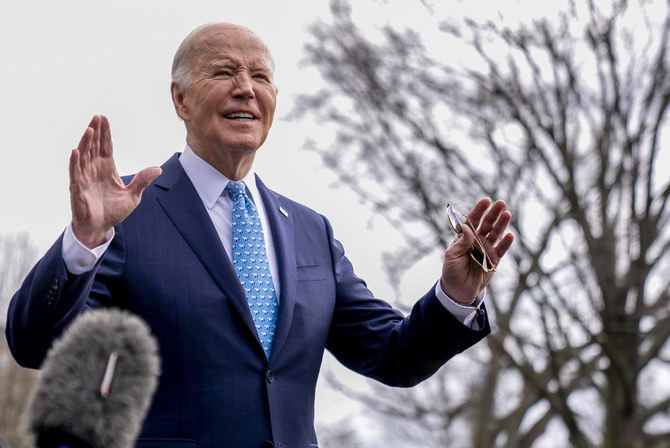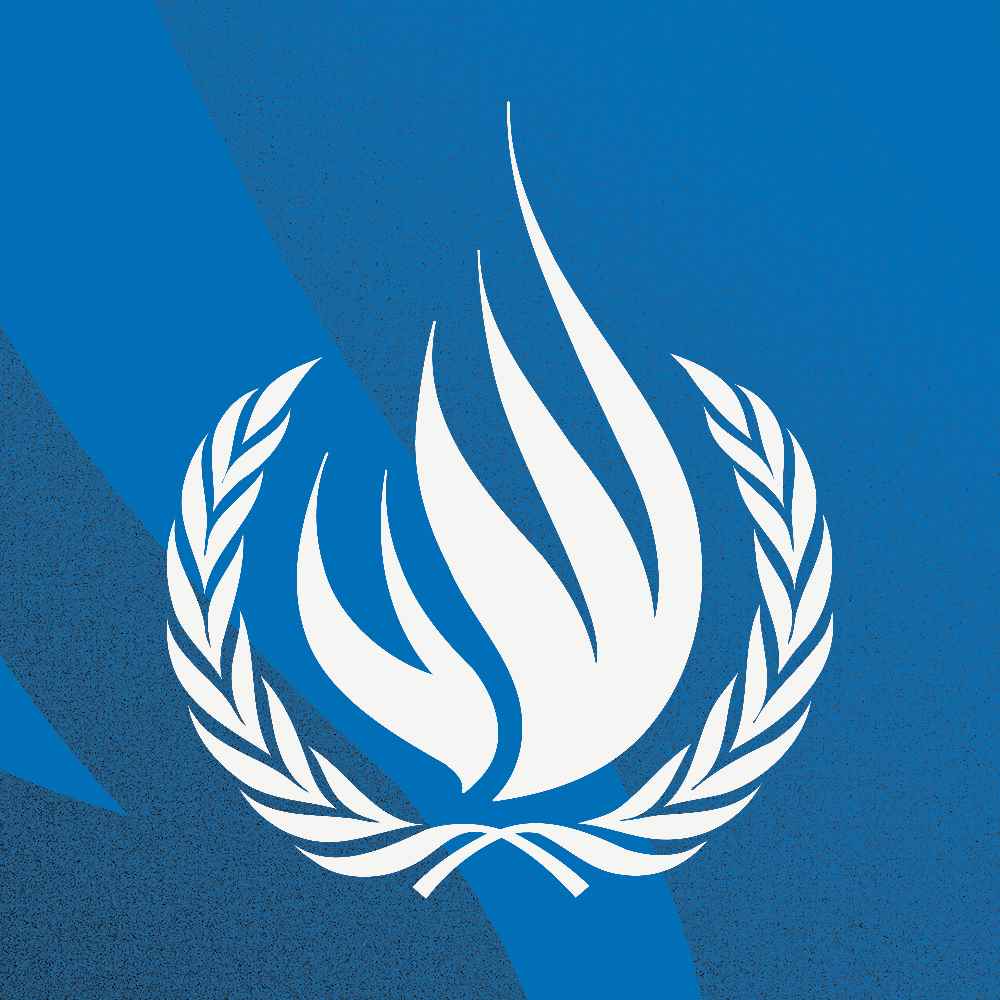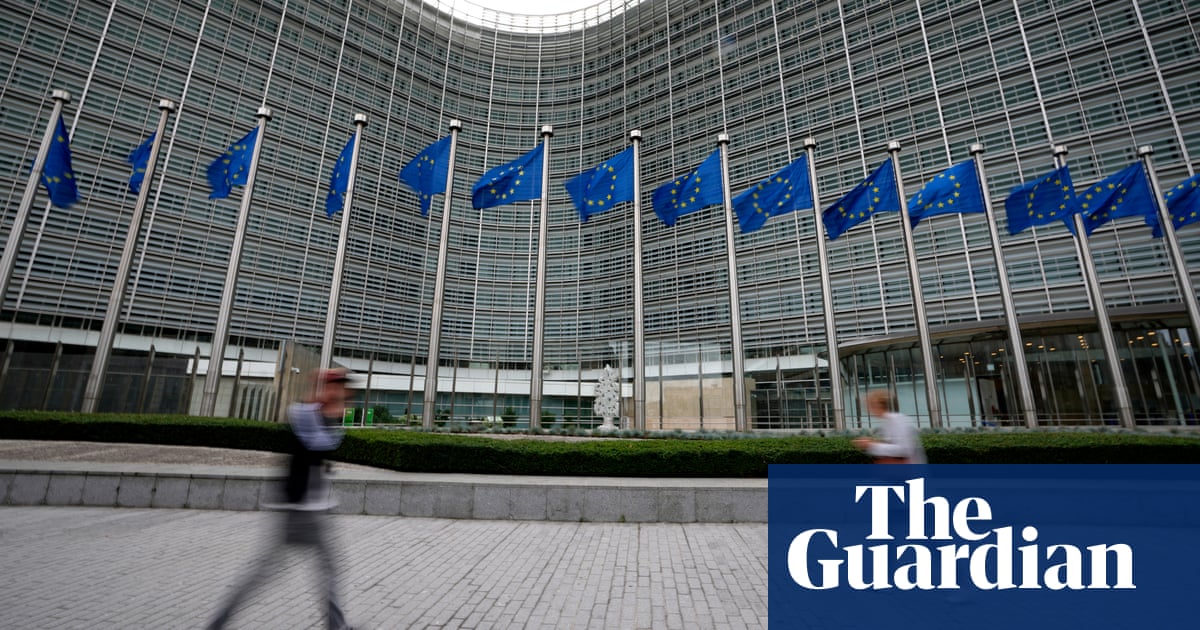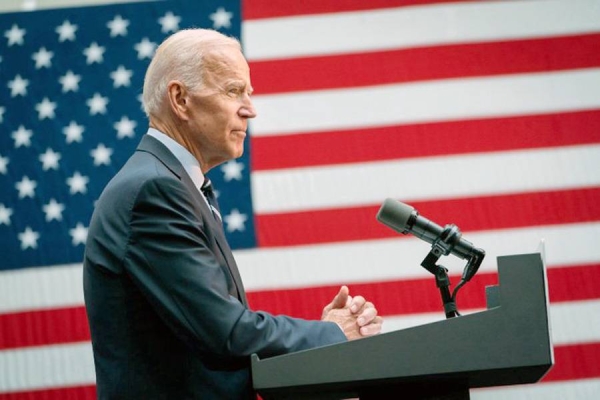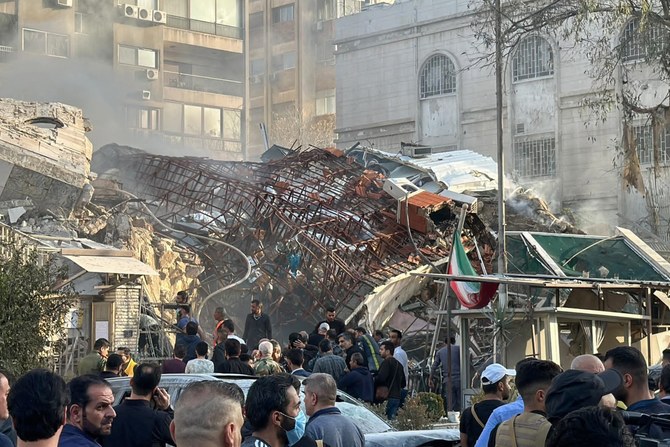
Could this week’s targeting of the Iranian consulate in Damascus be the straw that breaks the camel’s back and finally removes the mask that has covered the Israeli-Iranian proxy war in the Middle East? Or is it just another chapter in the ongoing redrawing of the lines of confrontation between Israel and the so-called axis of resistance led by Iran?
The attack on the Iranian consulate could undoubtedly be a game-changer. It could be seen by Tehran as a direct attack on its sovereignty. However, although international laws, specifically the Vienna Convention on Diplomatic Relations, have set certain obligations regarding the sanctity of diplomatic missions, they fall short of calling such sites foreign territories.
Israel and Iran have, over the years, mastered the art of asymmetric warfare, or “ghost wars.” Israel has never wanted a direct war with Iran. And Iran has long avoided becoming embroiled in any conflict that might threaten its territories or its regime.
Iran has warned its archrival that it will retaliate for the airstrike that destroyed the five-story Iranian consulate building adjacent to its embassy in the Syrian capital. Iran’s state media claimed that Israeli F-35s launched six missiles at the consulate building, levelling it and killing 13. Seven of the victims were from the Islamic Revolutionary Guard Corps’ Quds Force foreign operations arm, including Mohammed Reza Zahedi, the group’s commander for Syria and Lebanon, his deputy Mohammed Hadi Haji Rahimi and Hossein Aminullah, the chief of the general staff for Lebanon and Syria.
Iran has long avoided becoming embroiled in any conflict that might threaten its territories or its regime
Mohamed Chebaro
As usual, Israel has remained silent, not confirming or denying its actions in Damascus, but a senior Israeli government official told Reuters that the Iranian generals who were killed “had been behind attacks on Israeli and American assets and had plans for additional attacks,” while claiming that the embassy itself “was not a target.”
The attack represents a serious test for Iran, which will feel that it needs to respond even though it remains keen to avoid dragging itself into an all-out open conflict with Israel.
Israeli strikes against Iranian or Hezbollah assets in Syria are not new; they have been ongoing since long before Oct. 7. They maybe intensified after Hamas’ attacks on Israel nearly six months ago, as numerous strikes have since focused on weapons transfers in Syria, with high-level IRGC personnel often caught up in the attacks. Monday’s attack was an exception to the rule, as it directly targeted an official Iranian installation and the military figures that operated within it.
Iranian Supreme Leader Ali Khamenei vowed that Israel “will be punished” and President Ebrahim Raisi condemned the attack, considering it a violation of international law that “will not go unanswered.” But the long-term significance of the strike may lie in Tehran regarding it as an attack on Iranian soil — and that might tip the Iranian leadership into thinking that it warrants an escalation beyond the confines of the finely calibrated rulebook of reprisals that are often carried out by Tehran-backed armed groups.
However, in keeping with its tradition of adopting strategic patience, Tehran is unlikely to rush into any reprisal and will most probably wait to ascertain the US’ response and find out whether the White House approved the attack or was simply notified as it took place. Washington has classified the IRGC as a terrorist group, but the US has been working hard diplomatically to prevent the Gaza war from spilling out into a wider conflict fought directly between Iran and Israel.
Iran’s strategic response, I am inclined to believe, could take many forms or shapes but will stop short of an all-out conflict. In the past, Israel has managed to neutralize key workers on Tehran’s nuclear program, including its chief scientist Mohsen Fakhrizadeh in November 2020, in addition to many cyber and physical attacks (that Israel denied) on installations related to Iran’s nuclear development program. In such cases, reprisals were limited and often carried out by Iranian proxy forces or agents.
Terror cells or groups affiliated with Iran have carried out attacks against Western assets across the world
Mohamed Chebaro
Even the assassination of Quds Force commander Qassem Soleimani by the US near Baghdad airport in January 2020 warranted only a very finely calibrated retaliation against American forces stationed in Iraq.
This is not to say that Iran lacks the capability or options to cause damage to Israel and its allies in the West, which Tehran deems complicit in the oppression of the Palestinians and Muslims across the world. Ever since its inception in 1979, many believe that the Iranian regime has resorted to forms of hybrid, deniable operations to hold its enemies accountable.
Attacks on Western and Israeli interests have dotted the pages of history since the early 1980s. Terror cells or groups affiliated with Iran have carried out attacks against Western military and diplomatic assets across the world, with their bombing and kidnapping campaigns taking place from Lebanon to Argentina. Examples include the Israeli Embassy bombing in Buenos Aires in 1992 and the killing of 86 people in a bombing at a Jewish center also in the Argentine capital in 1994. Of course, Tehran always denies it is responsible.
Iran has even resorted to arresting dual nationals on manufactured charges to blackmail Western countries into releasing frozen Iranian assets. And Iran remains the only state to have openly stormed an embassy on its soil, as it held more than 50 US citizens and diplomats hostage for more than 400 days between 1979 and 1981.
More recently, Iran has not denied its axis of resistance’s attacks on cargo vessels and US and UK naval assets in the Red Sea, apparently carried out in solidarity with Gaza. Nor does Tehran deny controlling four Arab capitals — Baghdad, Damascus, Beirut and Sanaa — or funding, training and arming various groups that have been launching missiles and drones against Israeli and US troops in the Middle East, also in solidarity with Gaza.
The deaths of the three Quds Force generals in Damascus was a decisive blow against Iran and the attack showed how badly its assets have been exposed, with the Israeli air force able to bomb them in broad daylight. And in view of their public brief, those generals were not mere diplomats undertaking consular work; instead, they were most likely carrying out military planning and logistics work with the aim of aiding their nation’s many proxy operations on foreign soil.
Mohamed Chebaro is a British-Lebanese journalist with more than 25 years’ experience covering war, terrorism, defense, current affairs and diplomacy. He is also a media consultant and trainer.




